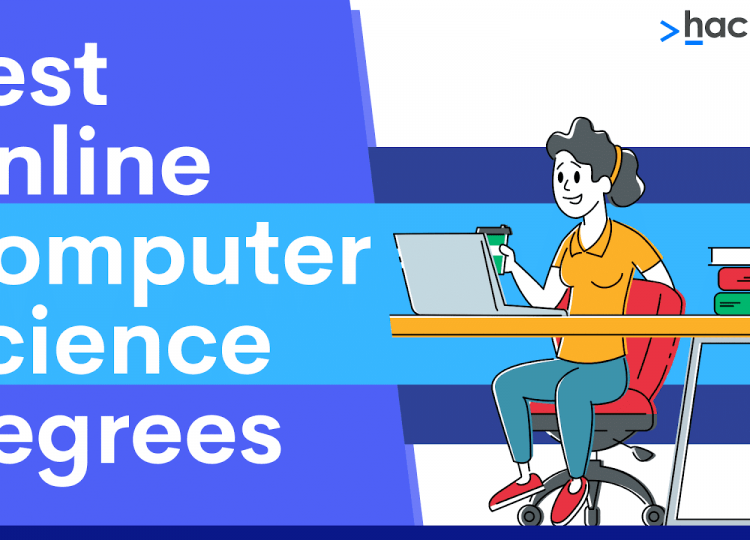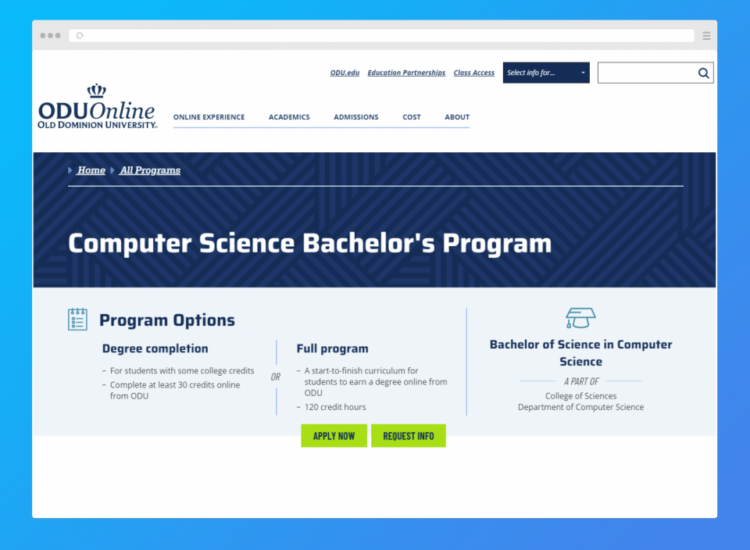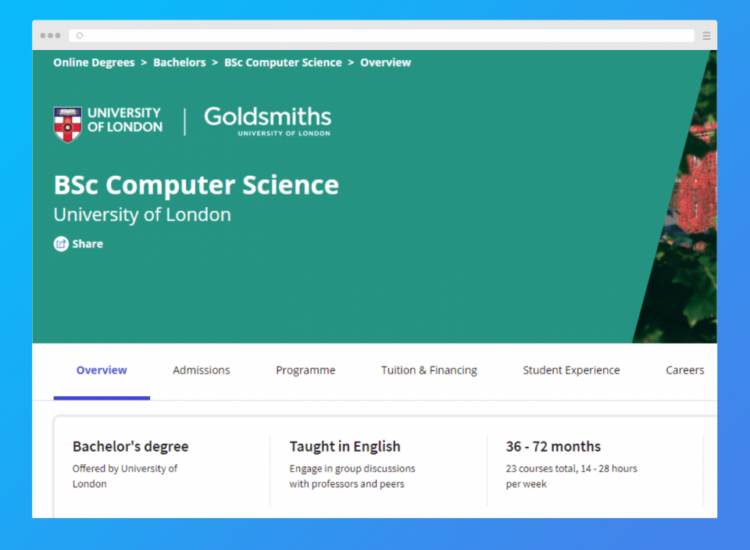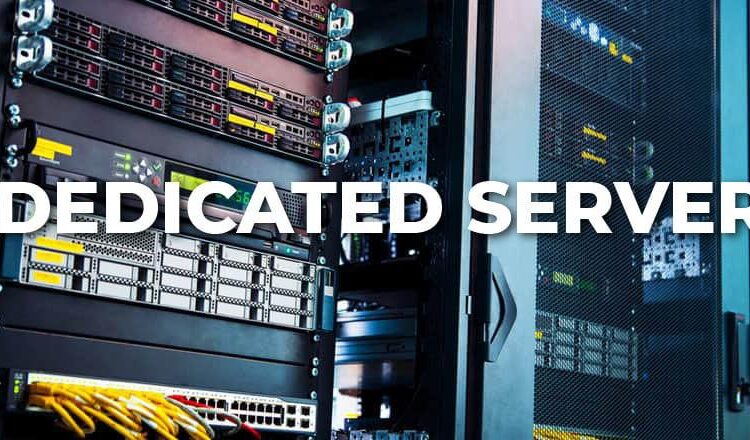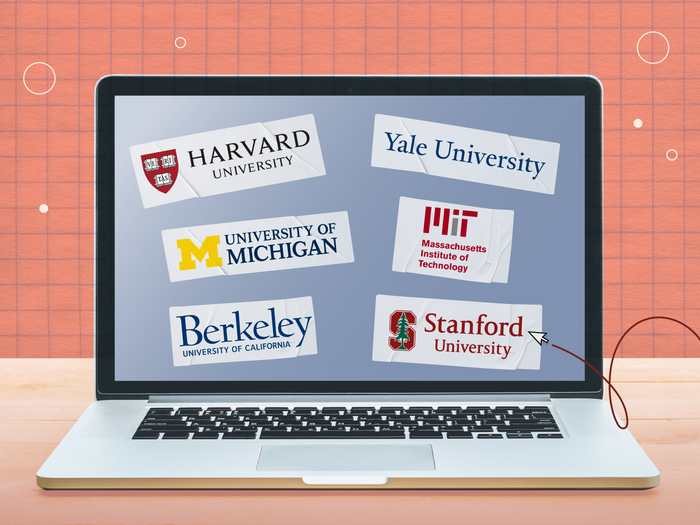The demand for educators skilled in technology integration is rapidly increasing. A recent study showed a 20% growth in job postings for educational technology specialists in the last two years. Educational technology masters programs offer a pathway to meet this demand, providing teachers with the skills to integrate technology effectively into their classrooms. However, the high cost of these programs and the time commitment required present significant barriers for many.
Toc
- 1. Understanding the Value of Educational Technology Masters Programs
- 2. Exploring Online Master’s in Educational Technology: Comprehensive Program Insights
- 3. Navigating Accreditation and Program Recognition
- 4. Financial Considerations and Aid Options
- 5. Certificate vs. Master’s Degree: Making the Right Choice
- 6. Career Paths and Job Market Outlook
- 7. Practical Implementation: Integrating Technology in Classrooms
- 8. Resources and Professional Development
- 9. Frequently Asked Questions
- 10. Conclusion: Embracing the Future of Education
- 11. Related articles 02:
- 12. Related articles 01:
Understanding the Value of Educational Technology Masters Programs

Educational technology masters programs represent a critical investment for K-12 educators seeking to revolutionize classroom learning. These comprehensive programs equip teachers with cutting-edge skills to leverage digital technologies, transform instructional methodologies, and enhance student engagement.
Key Benefits of Pursuing a Master’s in Educational Technology
- Enhanced Teaching Strategies: By learning about the latest educational technologies, teachers can adopt innovative teaching strategies that engage students and cater to various learning styles. This knowledge allows educators to create a more interactive and personalized learning experience. For instance, using interactive simulations in science classes, such as PhET Interactive Simulations, can make complex concepts more tangible. Additionally, employing gamified learning platforms like Kahoot! encourages participation and retention, enhancing overall student engagement.
- Improved Student Learning Outcomes: Research has shown that integrating technology into the classroom can lead to improved student performance. Educators with a Master’s in Educational Technology can effectively use digital tools to assess student understanding, provide immediate feedback, and adapt their teaching methods to meet individual needs. For example, meta-analyses have indicated a positive correlation between technology integration and standardized test scores, suggesting that students in tech-enhanced environments often perform better academically. However, it’s essential to recognize potential challenges such as the digital divide, which may hinder learning outcomes for students lacking access to technology or reliable internet.
- Advanced Technology Integration Skills: In today’s digital age, teachers must be adept at using various technologies. A master’s program helps educators become proficient in using software, applications, and digital platforms that facilitate learning.
- Career Advancement Opportunities: Graduates of educational technology masters programs often find themselves eligible for higher-level positions within educational institutions. Roles such as instructional designers, technology coordinators, and e-learning specialists are just a few examples of the career paths available. However, the job market is competitive, and a master’s degree alone does not guarantee a specific position. Additional skills and networking are often necessary to secure desired roles.
- Higher Salary Potential: A Master’s in Educational Technology offers a strong return on investment. Professionals in educational technology often command higher salaries compared to their peers without specialized training. However, salary increases are not guaranteed and depend on various factors, including experience, location, and the specific job.
Exploring Online Master’s in Educational Technology: Comprehensive Program Insights
Program Structures and Curriculum Considerations
Top educational technology masters programs offer diverse learning experiences, including:
- LSU Educational Technology Program
- Overview: Louisiana State University offers a robust online program designed to prepare educators for leadership roles in technology integration. The curriculum emphasizes practical application and real-world scenarios.
- Strengths: Students benefit from a flexible learning environment, allowing them to balance their studies with professional commitments. The program includes courses in instructional design, multimedia learning, and digital pedagogy.
- CSULB Educational Technology Master’s
- Overview: California State University, Long Beach, provides an innovative program focusing on the intersection of technology and education. This program prepares educators to develop and implement effective technology-enhanced learning experiences.
- Strengths: The curriculum is designed to foster critical thinking and problem-solving skills, equipping educators to navigate the challenges of modern classrooms. Specializations in areas such as online learning and digital media are available.
Core Curriculum Components
Educational technology masters programs typically include foundational courses covering various essential topics, such as:
- Educational Technology Theory: Understanding the theoretical frameworks that underpin technology integration in education.
- Digital Learning Design: Learning to design engaging and effective digital learning experiences for diverse student populations.
- Instructional Technology Strategies: Exploring various strategies for integrating technology into teaching and learning processes.
- Data-Driven Assessment Techniques: Using data to inform instructional decisions and improve student outcomes.
- Emerging Educational Technology Trends: Staying updated on the latest trends and innovations in educational technology.
Emerging Trends in Educational Technology
As the educational landscape continues to evolve, several trends are shaping the future of learning.
- AI-Powered Personalized Learning Platforms: The rise of artificial intelligence has led to the development of personalized learning platforms that adapt to individual student needs. These tools analyze student performance data to tailor educational experiences, ensuring that every learner receives the support they require.
- Virtual and Augmented Reality (VR/AR): The increasing use of VR and AR technologies in education is creating immersive learning experiences. These tools allow students to explore complex subjects in a virtual environment, enhancing engagement and understanding.
What to Look for in an Accredited Program
Choosing an accredited educational technology masters program ensures:
- High-Quality Educational Standards: Accreditation signifies that the program meets rigorous academic standards set by recognized accrediting bodies.
- Professional Credibility: Graduating from an accredited program enhances your resume and can increase your marketability to potential employers.
- Enhanced Job Market Opportunities: Many school districts and educational institutions require candidates to have degrees from accredited programs.
Recommended Accreditation Bodies
- National Council for Accreditation of Teacher Education (NCATE): Ensures that teacher education programs meet national standards for quality.
- Distance Education Accrediting Commission (DEAC): Focuses on the quality of distance education programs.
- Regional Accreditation Agencies: Various regional accrediting bodies evaluate the quality of education offered by institutions.
Financial Considerations and Aid Options
Understanding Program Costs
Average tuition for educational technology masters programs ranges from $15,000 to $45,000, depending on:
- Institution Reputation: Well-established universities may charge higher tuition rates.
- Program Duration: Programs that can be completed in a shorter timeframe may have different pricing structures.
- Delivery Method: Online programs may have different cost structures compared to traditional on-campus programs.
Tuition Costs
It’s essential for prospective students to consider the total cost of obtaining a degree, including tuition and associated fees, to make informed financial decisions.
Federal and State Funding
Many students qualify for federal loans, which typically offer lower interest rates compared to private loans. Additionally, some states provide funding assistance for educators pursuing advanced degrees, further alleviating financial burdens.
Scholarships and Grants
Numerous organizations and institutions offer scholarships specifically for students pursuing degrees in educational technology. Researching and applying for these scholarships can significantly reduce overall costs. Furthermore, professional development grants from educational organizations can support teachers seeking further education in technology integration.
Employer Assistance
Some employers offer tuition reimbursement programs as part of their employee benefits. Educators should check with their employers about available options, which can substantially lower out-of-pocket expenses.
Certificate vs. Master’s Degree: Making the Right Choice
Educational Technology Certificate
An Educational Technology certificate offers a shorter, more focused program that allows educators to enhance their skills without committing to a full degree. This option may be ideal for those looking to quickly gain specific skills or knowledge.
- Advantages:
- Shorter program duration (typically 6 months to 1 year).
- Lower financial investment compared to a full master’s degree.
- Focused skill development in specific areas of technology.
- Disadvantages:
- Limited career advancement opportunities.
- May not provide the same depth of knowledge as a master’s program.
Master’s in Educational Technology
A Master’s in Educational Technology provides a comprehensive curriculum designed to equip educators with a deep understanding of technology integration in education.
- Advantages:
- Comprehensive curriculum covering various aspects of educational technology.
- Advanced career opportunities in instructional design, technology leadership, and educational consulting.
- Higher salary potential and job market competitiveness.
- Disadvantages:
- Longer program duration (typically 1 to 2 years).
- Higher financial investment compared to certificate programs.
Career Paths and Job Market Outlook
Potential Career Opportunities
Graduates of educational technology masters programs can pursue various rewarding career paths, including:
- Instructional Designer: Creating engaging and effective instructional materials and experiences for diverse learners.
- Technology Coordinator: Overseeing the integration of technology within educational institutions and providing support to teachers and staff.
- E-Learning Specialist: Developing and implementing online learning programs and courses for various educational settings.
- Educational Technology Consultant: Advising schools and organizations on best practices for technology integration and digital learning strategies.
- Digital Curriculum Developer: Designing and developing digital curriculum resources and assessments that align with educational standards.
Salary Expectations
Salary expectations for professionals in educational technology vary based on several factors, including geographic location, level of experience, and specific job roles. According to industry data:
- Average Salary Range: $55,000 to $95,000, with many positions offering competitive salaries.
- Higher Salaries in Urban Districts: Professionals working in urban areas may command higher salaries due to the cost of living and increased demand for technology integration.
- Additional Certifications Increase Earning Potential: Obtaining specialized certifications can lead to higher salary offers and more advanced job opportunities. However, it’s important to note that salary increases are not guaranteed and depend on factors such as experience, location, and specific job roles.
Practical Implementation: Integrating Technology in Classrooms
Successful Technology Integration Strategies
Successfully integrating technology into classroom instruction requires careful planning and execution. Here are some effective strategies for educators:
- Develop Engaging, Technology-Enhanced Lesson Plans: Incorporate digital tools and resources to create interactive and engaging lessons that capture students’ attention and promote active learning.
- Promote Digital Citizenship: Teach students the importance of responsible technology use, including online safety, ethical behavior, and respectful communication.
- Use Adaptive Learning Technologies: Leverage adaptive learning platforms that personalize learning experiences based on individual student needs and progress.
- Implement Data-Driven Assessment Techniques: Utilize technology to collect and analyze student performance data, enabling educators to make informed instructional decisions and adjust their teaching methods accordingly.
Overcoming Implementation Challenges
While integrating technology into the classroom can yield significant benefits, educators may encounter challenges along the way. Here are some common obstacles and potential solutions:
- Address Technological Resistance: Some educators may resist adopting new technologies. Providing professional development opportunities and showcasing successful technology integration examples can help alleviate concerns.
- Secure Adequate Resource Funding: Schools may face budget constraints that limit access to necessary technology. Advocating for funding and seeking grants can help secure resources for technology integration.
- Provide Continuous Teacher Training: Ongoing professional development is essential for educators to stay updated on the latest technologies and best practices. Schools should prioritize training opportunities to support teachers in their technology integration efforts.
- Create Supportive Learning Environments: Building a culture that values technology integration and innovation can foster collaboration among educators and encourage experimentation with new tools and strategies.
Resources and Professional Development
Online Communities and Networking
Connecting with fellow educators and professionals in the field of educational technology can provide valuable insights and support. Here are some recommended online communities and networking opportunities:
- Masters in Educational Technology Reddit Forums: Engage in discussions, ask questions, and share experiences with other educators pursuing or considering educational technology masters programs.
- Professional LinkedIn Groups: Join groups focused on educational technology to network with industry professionals, share resources, and stay updated on job opportunities.
- Educational Technology Conferences: Attend conferences to learn about the latest trends, technologies, and best practices in the field. Networking at these events can lead to new connections and opportunities.
- Webinars and Virtual Workshops: Participate in online training sessions and workshops to enhance your skills and knowledge in specific areas of educational technology.
Job Search Platforms
Finding educational technology jobs can be streamlined through various online platforms. Here are some recommended resources:
- EdTech Job Boards: Websites like EdSurge and HigherEdJobs specifically cater to educational technology positions, making it easier for graduates to find relevant job openings.
- Professional Networking Sites: LinkedIn is a valuable tool for connecting with potential employers and discovering job opportunities in educational technology.
- University Career Centers: Many universities offer career services to help graduates find job placements and connect with employers in the field.
- State Education Department Job Listings: Check state education department websites for job postings related to educational technology positions in K-12 schools.
Frequently Asked Questions
Common Queries About Educational Technology Masters Programs
As interest in educational technology masters programs grows, many potential students have common questions. Here are some frequently asked questions:
- How long do programs typically take? Most educational technology masters programs can be completed in 1 to 2 years, depending on the course load and delivery method.
- Can I work while completing the degree? Yes, many programs offer flexible online options that allow working educators to balance their studies with professional commitments.
- What technology skills will I learn? Students will gain skills in instructional design, digital media creation, data analysis, and technology integration strategies.
- Are online programs as effective as on-campus options? Online programs can provide a high-quality education, but it’s essential to choose accredited programs that meet rigorous standards.
Conclusion: Embracing the Future of Education
Educational technology masters programs provide K-12 educators with transformative skills to navigate the digital learning landscape. By carefully selecting a program that aligns with professional goals, teachers can unlock unprecedented opportunities for career growth and meaningful educational impact.
The journey into educational technology is not just about mastering tools—it’s about reimagining learning for a dynamic, technology-driven world. Embrace the opportunity to become a leader in educational innovation. By investing in a Master’s in Educational Technology, educators can enhance their teaching capabilities, improve student outcomes, and contribute to a more technologically advanced and engaging learning environment. Start your journey today and explore the programs mentioned in this article to become a pioneer in the field of educational technology!
2. https://minidanang.com/mmoga-level-up-your-career-with-online-business-certificate-programs/
3. https://minidanang.com/mmoga-finding-the-best-masters-in-education-programs-for-career-advancement/
4. https://minidanang.com/your-guide-to-online-mha-degree-programs-accelerate-your-healthcare-career/
5. https://minidanang.com/mmoga-cheapest-online-masters-degree-programs-in-2024/
1. https://minidanang.com/mmoga-cheapest-online-masters-degree-programs-in-2024/
2. https://minidanang.com/mmoga-level-up-your-career-with-online-business-certificate-programs/
3. https://minidanang.com/mmoga-finding-the-best-masters-in-education-programs-for-career-advancement/
5. https://minidanang.com/your-guide-to-online-mha-degree-programs-accelerate-your-healthcare-career/
